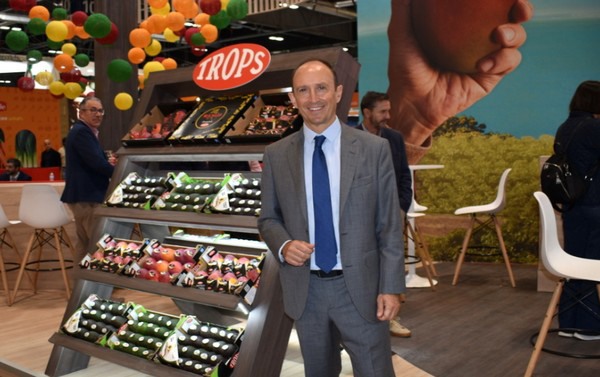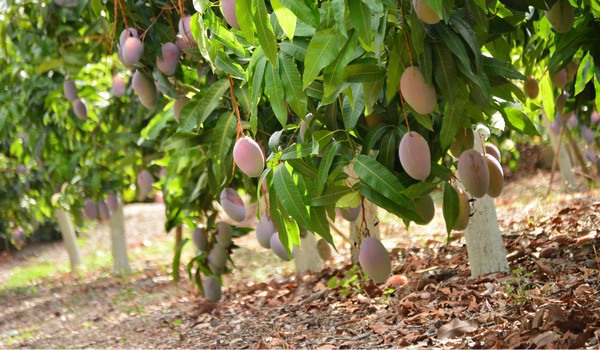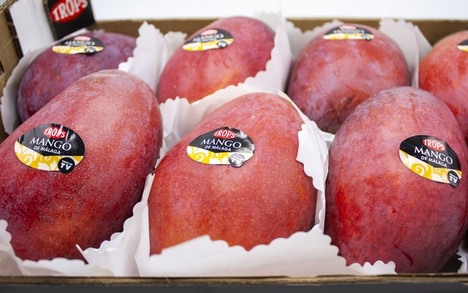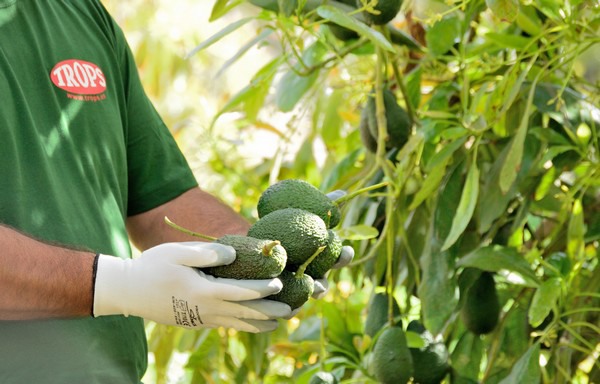The Spanish mango campaign will come to a close at the end of this month, between 7 and 10 days earlier than usual. It is the result of a higher demand and lower competition from other origins, as well as the superior organoleptic quality of Malaga's fruit.
 © TROPS
© TROPS
"For some reason, there has been less supply from other origins in the European markets, especially from Brazil. We have been more alone in the market and we have sold our mangoes faster than usual because of our superior quality," says Enrique Colilles, CEO of Trops, a cooperative that produces and markets about 55% of all the mangoes grown in Spain. "Also, as confirmed by our customers and consumers, the flavor and, in general, the quality of Malaga's mangoes has been really spectacular this year, in which, surprisingly, the calibers have been a little smaller."
This abundance of less commercial calibers has been the biggest handicap to keep prices at a satisfactory level for the growers. "Malaga's mangoes are worth more than what is being paid for them. The usual sales channels did not expect to get smaller mangoes and that has led to a later activation of the demand, even though consumers haven't noticed. There are European supermarket chains where our mangoes are performing surprisingly well," says Enrique Colilles.

"Normally, when the mango season starts in Malaga, mango sales increase in stores, given its flavor and attractive appearance, as it is allowed to ripen for longer on the tree thanks to its proximity to European markets. This is something that has been even more noticeable this year, given its flavor and the lower presence of imports from other origins. Now that the Spanish season is coming to an end, supermarket chains will notice the difference in sales," he says.
According to the CEO of Trops, Malaga's mangoes are still not valued as they should be when they reach commercial sizes, so when there is a predominance of smaller sizes due to the influence of the weather, the average price drops significantly.

"During the Spanish mango season, European markets have access to a local European product which stands out for its lower carbon footprint and its excellent taste. I think it is important for us all to become more flexible and ensure the 'decommoditization' of certain products. A box of mangoes cannot be worth 6 Euro all year round if, for a few months, you have a product that boosts your sales and attracts consumers to the stores. Therefore, why can't you pay 40-50% more than for the product from other origins? There are supermarket chains that are realizing (now that the campaign is ending) how much demand is generated by Spanish mangoes, and they are asking us for quantities that we cannot supply. Surely there will be changes in the next campaigns. In the future, there may be chains that will be left without Spanish mangoes because the fruit will be supplied to those that appreciate it," said Enrique Colilles.
This year, Spain's avocado production could be 30-40% lower
The Bacon and Fuerte varieties of smooth-skinned avocados are currently being harvested in Spain, and the first Hass of the season will also arrive soon.
"We expect a campaign with a harvest between 30 and 40% smaller than last year, although in the Velez Valley, one of the most important producing areas in the country, the drop in the production could exceed 60%," said Enrique Colilles, who pointed out that "this will not only happen in Spain, but in most producing countries. It is a difficult product to grow. There are areas where avocados thrive and others where their production can be problematic, and this is something that has become clear again this year.

Since there are fewer pieces on the trees, the prospect is that there will be an abundance of large sizes, although, according to the CEO of Trops, there will be availability of all formats and for all types of customers.
Regarding avocado consumption trends, Enrique Colilles said that while "there was a large production last year and it looked like avocado consumption patterns were changing, with a greater supply than demand, our perception is that consumption continues to grow. There is a lot of interest in this product and new consumers continue to appear. Normally, those who try avocados for the first time end up introducing them into their regular diet."
Last season, Trops marketed some 30,000 tons of Spanish avocados; that is, between 40 and 50% of the entire national production.
For more information: TROPS
TROPS
Nave TROPS. Políg. Industrial TROPS
C.P. 29719 Vélez-Málaga. Spain
Tel.: +34 952 500 700
[email protected]
www.trops.es










